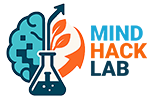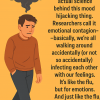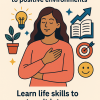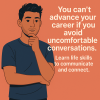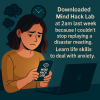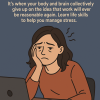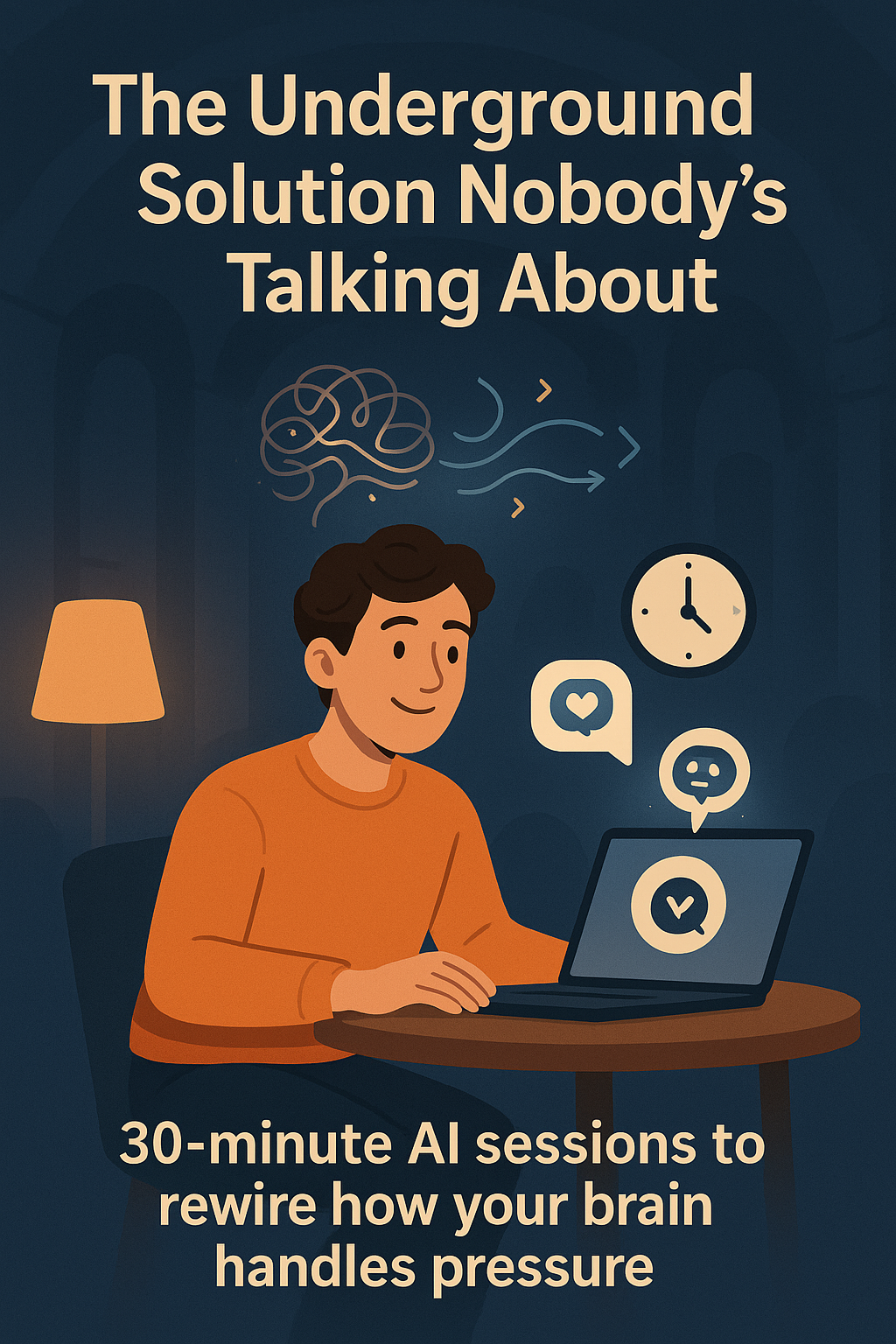
Why I Started Using an AI Life Coach at 3 AM (And You Probably Should Too)
I used to think life coaches were for people who couldn't figure things out themselves. Then I had my third panic attack in a conference room.
The Night Everything Changed
3:07 AM. I was lying in bed, replaying the meeting where I completely blanked during my project update. Not just stumbled—full mental freeze. My manager's face. The silence. I wanted to crawl under my desk and disappear.
Sound familiar?
I'd been managing the anxiety okay-ish for months. Coffee, deep breaths, fake it til you make it. But something in my Confidence & Calm Under Pressure pillar had finally cracked. Maybe two pillars. Who knows.
That's when I found this AI coach thing. At 3 AM. Because of course.
What Actually Happened When I Tried It
Look, I was desperate. The session was called something like "Center-Breath + Label" which sounded... whatever. But I was awake anyway.
Here's the weird part—it wasn't meditation. It was this specific technique where you breathe in a pattern while naming exactly what you're feeling. Not "I'm stressed." More like "tight chest, racing thoughts about tomorrow's presentation, shame spiral from today."
Twenty minutes in, something shifted. Not magic. More like... when you finally pop your ears on a plane.
Why This Works When Nothing Else Did
Turns out when you're panicking, your brain literally can't think straight. Like, physiologically cannot. The panic part hijacks the thinking part.
Traditional advice? "Just calm down." "Think positive." Yeah, super helpful when your brain is on fire.
These AI sessions teach you techniques that actually interrupt the panic loop. It's skills training, not therapy. Nobody's asking about your childhood.
The 3 AM Secret Nobody Admits
Here's what nobody tells you about work anxiety—it doesn't happen during work hours. It happens:
- Sunday night before the week starts
- 4 AM when you can't stop replaying that awkward interaction
- In the parking lot before you walk in
- During lunch when everyone else seems fine
Your therapist is booked for three weeks. Your friend is tired of hearing about it. And honestly? You don't want anyone at work knowing you're struggling.
Recent data shows workplace disengagement costs $8.8 trillion globally. We're all pretending we're fine. We're not fine.
My Actual Results (Not Miraculous, Just Real)
I'm not suddenly fearless. But I have tools now. Real ones that work when I need them.
The Awkward Truth
I still haven't told anyone at work I'm doing this. There's this weird shame about needing help with basic human functioning. Like everyone else just naturally knows how to handle pressure.
Spoiler: They don't. The people who seem bulletproof? They just found better tools. And they're definitely not advertising it in the break room.
What I Wish I'd Known Sooner
You know that feeling when you're drowning but trying to look like you're waving? That was me for two years. Professional development that actually works isn't about climbing the ladder faster—it's about not falling off while you climb.
Actually, wait—that's not quite right. It's about learning the skills nobody taught us. How to breathe when your chest is tight. How to think when your mind goes blank. How to sleep when tomorrow terrifies you.
This is a skills practice, not medical or mental health treatment. But honestly? These skills matter more than most things on my resume.
If You're Reading This at 3 AM
You know exactly why you're here. Maybe you just bombed another presentation. Maybe you're dreading tomorrow. Maybe you're tired of pretending everything's fine when it's not.
I can't tell you it gets magically better. But I can tell you there are actual, learnable techniques that help. And nobody has to know you're learning them.
Mind Hack Lab's AI sessions are there whenever you need them. Because anxiety doesn't care about business hours.
Ready to Take Control?
The worst that happens? You waste 30 minutes at 3 AM. You were awake anyway.
```
